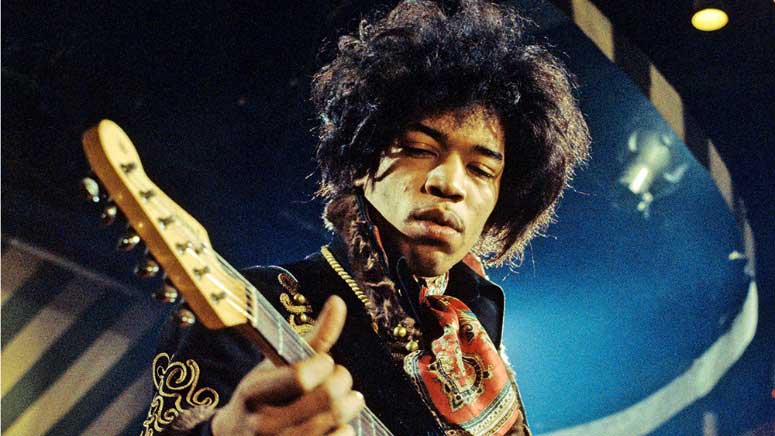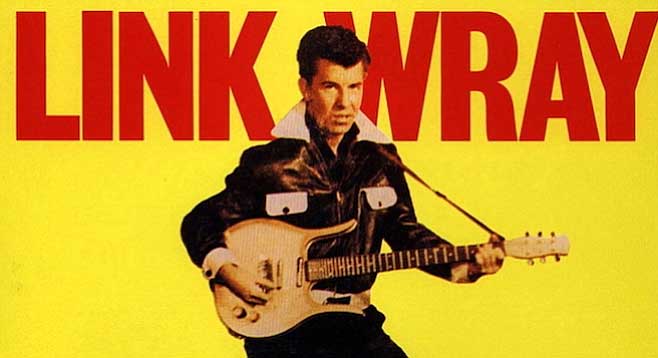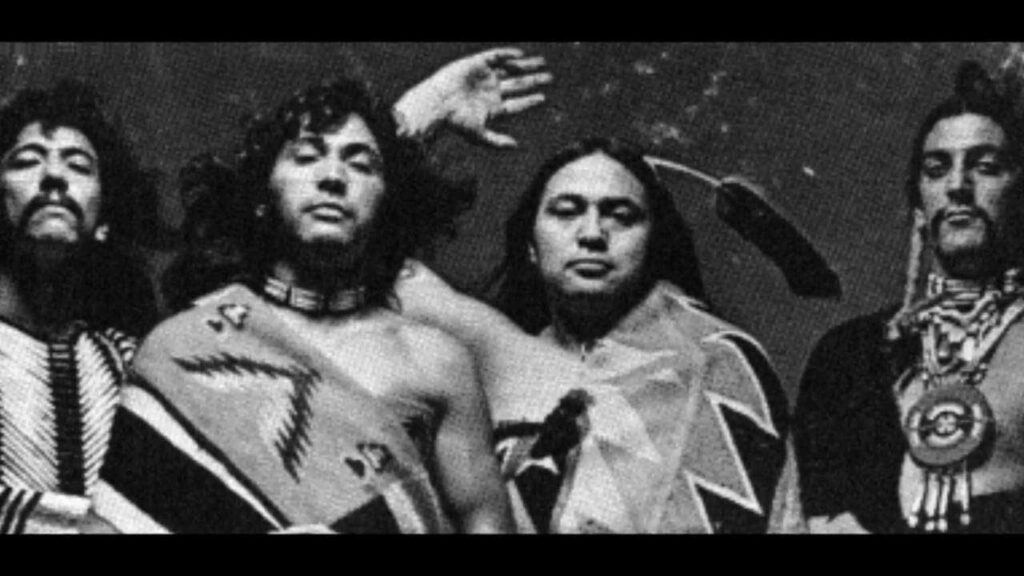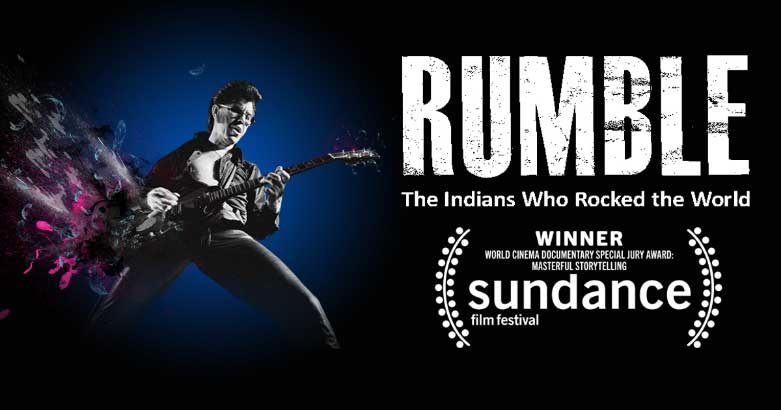In an eye-opening new documentary, Rumble: The Indians Who Rocked the World, hidden Native American figures are finally given credit for influencing a vast amount of popular music.
For a song with no lyrics, “Rumble” managed to say a lot about sex, swagger and the allure of teenage rebellion. Released in 1958 by Native American guitarist Link Wray, the track – all dirty chord progressions and blistering guitar – was an omen of the impending 60s rock revolution… “Rumble’s narrative goes far deeper than teenage impulses, tracing a path from rock ‘n’ roll to jazz to the blues to the music of pre-colonial America, before European immigrants and Federal government began their systematic decimation of Native people and the vibrant musical traditions they carried. Through exhaustive research backed by the Smithsonian, Rumble makes a case that the blues, the oldest form of American popular music, was influenced by even more ancient Native styles of playing and singing.
In particular the film points to Charley Patton – “the father of the Delta blues” who’s believed to have Choctaw ancestry – as a key artist who melded traditional tribal rhythms with the then burgeoning blues. The scene in which Tuscarora/Taíno musician Pura Fé demonstrates the Native influence in Patton’s “Down the Red Dirt Road” will likely give you chills.
“That’s Indian music with a guitar,” Fé says, her eyes lighting up, “that’s where it went.”
Patton’s style influenced other blues artists and, eventually, the British rock and rollers like The Rolling Stones, The Who and Zeppelin who would bow at their feet in the ‘60s. Rumble features a 1965 clip from the American musical variety show Shindig! in which the Stones host a performance by Howlin’ Wolf, who was deeply influenced by Patton. With such footage, Rumble fleshes out the DNA of popular music, which has for centuries been incomplete due to the suppression of Native people.”
…Find the entire article and full facts about this new documentary




